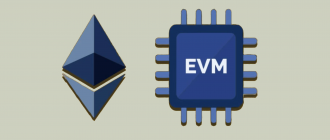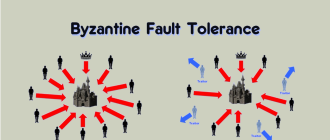Smart contracts are a groundbreaking technology within the blockchain and cryptocurrency sphere that is transforming the way business transactions are conducted between parties. These are autonomous software protocols designed to execute the terms of a contract automatically, eliminating the need for intermediaries. The use of smart contracts spans a broad range of areas, from finance and real estate to legal practices, offering faster, more secure, and efficient transaction methods. Not merely simplifying existing processes, smart contracts also pave the way for new business models and services.

Technical Functionality
Smart contracts are programs that run on blockchain platforms like Ethereum. They automatically execute, control, or document legally significant events based on the terms of the contract encoded in the blockchain. The advantage of smart contracts is their ability to provide a high degree of transparency and security, reducing the need for trust between parties.
Historical Background
The concept of smart contracts was first introduced by cryptographer and legal scholar Nick Szabo in 1994. Szabo described smart contracts as “computerized transaction protocols that execute the terms of a contract.” His aim was to use digital protocols to automate traditional legal contracts, thereby reducing the reliance on trusted intermediaries such as banks or legal entities, and minimizing the potential for fraud.
Szabo’s vision was significantly ahead of its time, as the technology necessary to fully realize the potential of automated contracts did not yet exist. This idea remained largely theoretical until the advent of blockchain with the creation of Bitcoin in 2009 by Satoshi Nakamoto, which introduced a decentralized digital currency.
Although Bitcoin implemented basic forms of smart contracts through transaction scripts, its capabilities were limited. In 2015, Vitalik Buterin and his team launched Ethereum, a platform specifically designed to support more complex smart contracts. Ethereum introduced the Turing-complete programming language, Solidity, allowing developers to write sophisticated programs (smart contracts) that could autonomously execute complex operations based on predefined conditions and interact with other contracts and blockchain networks.
The development of Ethereum sparked a wave of blockchain innovation, as developers were empowered to create decentralized applications (dApps) based on it. This also encouraged the development of several other blockchain platforms like Cardano, EOS, and Tron, which offered improvements and alternatives to Ethereum’s mechanisms, further expanding the capabilities of smart contract technology.
How Smart Contracts Operate
Smart contracts are autonomous programs that automatically execute predetermined conditions and operations using blockchain technology. To understand their operation more deeply, let’s examine their functionality on the Ethereum platform, which is the most popular for creating smart contracts.
Interaction with Blockchain
Each smart contract is written in a programming language like Solidity for Ethereum and is deployed to the blockchain in the form of bytecode, which can be interpreted and executed by the Ethereum Virtual Machine (EVM). Smart contracts are triggered by transactions sent by users or other contracts. These transactions set the initial conditions and input data needed for the contract to operate.
Code Execution
Once a transaction reaches a smart contract, the EVM reads and executes the contract code step by step. All operations are strictly controlled and require the expenditure of “gas,” the energy allocated for processing changes. Gas is a metric used to calculate the amount of computational resources needed for each operation, preventing abuse and helping manage the network’s resources.
Contract State
Every smart contract has its own stored state on the blockchain, which updates after each execution. The state may include data such as account balances, key numerical values, and participant lists. This data is continuously synchronized among all network participants, ensuring its integrity and availability.
Atomicity of Transactions
Transactions on the Ethereum blockchain and many others are atomic, meaning they either complete entirely or not at all. If an error occurs during the execution of a smart contract, the entire transaction is reverted to its original state, and the spent gas is not refunded.
Contract Interactivity
Smart contracts can interact not only with users but also with each other. This allows for the creation of complex decentralized applications where one contract can automatically trigger another within the same transaction. Such systems can implement complex financial instruments, decentralized autonomous organizations, and automated services without third-party intervention.
Smart contracts continue to evolve, including improvements in security, flexibility, and performance, making them one of the key technologies in the blockchain ecosystem.
Application Areas of Smart Contracts
Smart contracts have found widespread application across various industries, thanks to their ability to automate transactions, enhance security, and reduce reliance on intermediaries. Here are the key sectors where smart contracts are making a significant impact:
Financial Sector: Smart contracts form the backbone of decentralized finance (DeFi), facilitating the creation of automated lending platforms, exchange services, investment funds, and insurance without the need for banks or other financial institutions.
Insurance: Smart contracts automate the verification and execution of insurance claims based on data regarding the occurrence of the insured event. This speeds up payouts and reduces the potential for fraud.
Real Estate: In real estate, smart contracts simplify transactions involving property sales through automated contract execution and blockchain-based record-keeping, reducing the time and costs associated with processing transactions.
Logistics and Supply Chains: Smart contracts provide accurate, immutable records of the origin of goods and services, along with automatic management of agreements between suppliers, carriers, and buyers.
Government: The use of smart contracts in voting and other forms of government administration enhances transparency, reduces opportunities for manipulation, and simplifies the vote counting process.
Identification and Authorization: Smart contracts are used to create secure systems for identification and authorization, which can serve as a basis for accessing services and verifying identities without the need to disclose confidential information.
Intellectual Property and Copyrights: Smart contracts facilitate the management of licenses and rights for content, allowing creators to more effectively track the use of their work and automatically receive payments for it.
These examples showcase the diversity of smart contracts’ applications and their ability to radically transform traditional approaches in many industries, offering more efficient, secure, and cost-effective solutions.
Projects Utilizing Smart Contracts
Smart contracts have become foundational to numerous cryptocurrency projects, enhancing their functionality and offering a wide array of services to users. Below are key projects that actively utilize this technology:
Ethereum
Ethereum remains the most well-known platform for developing smart contracts. It not only popularized the concept of smart contracts but also provided developers with Solidity, a specialized programming language for crafting them. Ethereum-based smart contracts are pivotal in creating decentralized financial applications (DeFi), games, identification systems, and many other applications.
Chainlink
Chainlink extends the capabilities of smart contracts by allowing them to securely interact with external data and systems through what are known as oracles. This capability enables smart contracts to utilize real-world data, such as asset prices, weather conditions, or sports results, to automate and fulfill contract conditions.
Polkadot
Polkadot facilitates interaction among various blockchains, creating an ecosystem of interconnected blockchains. Smart contracts on the Polkadot network can exchange information and tokens directly with contracts on other blockchains, enhancing their functionality and applicability.
Cardano
Cardano is a blockchain platform that supports smart contracts while focusing on security and robustness through formal code verification and a consensus layer. Cardano aims to balance the needs of users with regulatory requirements, offering efficient and secure financial services.
Aave and Uniswap
Aave and Uniswap are leading projects in the DeFi space, operating on the Ethereum platform. Aave offers decentralized lending services, allowing users to borrow and lend cryptocurrencies against collateral. Uniswap utilizes smart contracts to create decentralized token exchanges, where prices are set automatically based on an algorithm, providing liquidity and trading opportunities without centralized exchanges.
Maker DAO
Maker DAO is another DeFi project on Ethereum that allows users to borrow US dollars against their cryptocurrency assets using the stablecoin DAI, which is pegged to the dollar. Smart contracts in Maker DAO manage all aspects of issuing, managing, and liquidating these stablecoins.
These projects demonstrate the versatility of smart contracts within the crypto ecosystem, enabling users and developers to create complex and interactive systems that can serve a wide range of economic and social needs.
Pros and Cons of Smart Contracts
Smart contracts, as a technological innovation, possess a number of significant advantages but also face certain challenges that could limit their widespread adoption. Here’s a more detailed look at the pros and cons of smart contracts:
Pros
- Process Automation
- Smart contracts enable the full automation of contract execution, minimizing the need for manual intervention and reducing human errors. For example, in the DeFi sector, smart contracts automatically perform complex financial operations such as issuing loans or trading assets.
- Reduction in Operational Costs
- By utilizing smart contracts, companies and individuals can avoid costs associated with legal services, accounting, and other forms of intermediation. This is particularly relevant in areas such as international trade and real estate transactions, where traditionally a lot of legal and accounting services are required.
- Increased Security and Reliability
- Thanks to the use of cryptography and blockchain’s distributed structure, smart contracts offer a high level of protection against tampering and fraud. Transactions and their terms cannot be altered without the consent of all network participants.
Cons
- Difficulty in Making Changes and Code Errors
- Once deployed on the blockchain, a smart contract cannot be easily altered or updated. This poses risks associated with code errors that can be exploited or lead to financial loss, as seen with the DAO incident on Ethereum in 2016.
- Scalability Issues
- Platforms like Ethereum face performance limitations when transaction volumes increase. This can lead to higher gas costs and longer transaction processing times, making the use of smart contracts economically less viable.
- Legal Uncertainty
- Smart contracts operate in a new legal environment where many aspects of their use are not yet regulated. This creates uncertainty for businesses and investors, especially in cases where disputes arise or legal interpretation of contract terms is required.
These factors underscore the importance of careful development and testing of smart contracts, as well as the need for developing more robust legal frameworks to handle them.
Future Prospects of Smart Contract Technology
Smart contract technology is on the cusp of significant transformations that promise to enhance its functionality, accessibility, and security. Here are the key areas of development for this technology:
Improving Scalability and Performance
The most significant limitations for the widespread adoption of smart contracts are issues related to scalability and high fees during network congestion. Developers are actively working on solutions to these problems through the implementation of second-layer technologies (Layer 2 solutions) such as Optimistic and ZK-Rollups. These allow transactions to be processed off the main blockchain chain, significantly speeding up processing and reducing transaction costs.
Enhancing Security
Incidents such as the DAO hack and other attacks have highlighted the importance of smart contract security. The development of formal verification, automated code analysis, and enhanced code auditing tools are key to minimizing future risks. Projects like Chainlink, which provide secure oracles for external data, also contribute to the security and reliability of smart contracts.
Expanding Functionality
As technology evolves, smart contracts are finding applications in new areas, including public administration, healthcare, and even elections, where they can ensure transparency and integrity of processes. Increased interoperability between different blockchains, such as the efforts of Polkadot and Cosmos, opens up new possibilities for complex cross-chain applications.
Legal Adaptation and Regulation
As smart contracts become more widespread, governments and regulatory bodies are also developing legal frameworks to manage them. Improving legislation can help eliminate legal uncertainty and strengthen trust in using smart contracts in commercial and personal transactions.
These prospects indicate that smart contract technology will continue to develop and integrate into various aspects of economic and social life, potentially leading to significant changes in how we conduct transactions and interact with one another.
Conclusion
Smart contracts have already changed the landscape of the modern economy and will continue to contribute to various industries. Their role in automation and providing trust between parties makes them an indispensable tool in the era of digital technologies. Despite some challenges, the future development of smart contracts promises significant improvements and new opportunities for all sectors of the economy.







